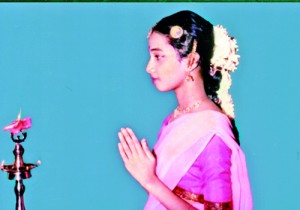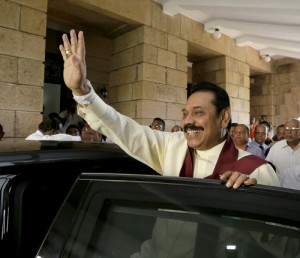Letters
View(s):Abolish preferential voting system instead of legalising wasteful practices
 Recently, it was highlighted in the National Press that polls laws are to be amended with the limited objective of relaxing provisions related to campaigning. Our immediate response to this exercise is why not legalize ‘kasippu’ (Illicit liquor) also at the same time because the police is unable to eradicate the menace?
Recently, it was highlighted in the National Press that polls laws are to be amended with the limited objective of relaxing provisions related to campaigning. Our immediate response to this exercise is why not legalize ‘kasippu’ (Illicit liquor) also at the same time because the police is unable to eradicate the menace?
As we know, the existing election laws pertaining to curtailment of propaganda campaigns by candidates are the result of a very democratic effort by the legislature. Primarily, they are aimed at making available a ‘level playing’ field to the candidates of all parties in view of their varying financial capabilities to meet enormous propaganda costs. In addition, they were aimed at reducing fierce inter and intra-party rivalry and environmental pollution caused by poster and polythene campaigns. Another moot factor is that these campaigns are often funded by resorting to illegal and unethical practices including money-laundering. Isn’t ‘Prevention better than cure’?
In developed countries, the general public does not attach undue importance to election propaganda. The information they get through mass media (Print and Electronic) is considered sufficient for their decision making. If Sri Lanka has achieved universal ‘middle income’ status, should we be resorting to ‘Might is Right’ tactics in election propaganda?
Background to the problem
Let us look at why these unwarranted happenings take place despite the gradual evolution of the political landscape of our country.
As we know, up to 1988 Parliamentary elections, the MP of the Electorate was the sole political representative whom the people in a locality could approach, to resolve their problems under the ‘First –past-the-post’ system. Thereafter, with the advent of the Proportionate Representation (PR) system, the same role was to be played by the District MP selected from the ‘Party list’. But since some parochial politicians argued to their advantage that people themselves should elect a person known to them in the District, the Preferential Voting (PV) system was annexed to the PR system. However, after the advent of the decentralized Provincial Councils (PCs) and Pradeshiya Sabhas (PSs), the PV system for Parliamentary elections should have been abolished as a logical corollary. It didn’t happen. As a result, the district MPs were compelled to protect and boost their own ‘preference vote’ base at general elections by selfishly blocking some powers and even financial votes allocated to PCs.
Thus, we still see the MP of the district rushing to declare open local facilities such as roads, bus stands, public lavatories etc., and the public continue to go to their District MP to obtain favours and solutions to their problems!
We know that the MP of a district cannot be contacted easily as he has to reside closer to the parliament in order to attend its sessions. When people cannot meet the MP they criticize the system. Some people even do not know or for that matter do not want to know that there are PC, MC, UC or PS members residing in their locality to whom they can easily address their problems. Sadly, their demi-God is still the MP or the President.
If our Judiciary, Police, Public service and the decentralized administrative machinery perform efficiently and honestly, the need to approach MPs will hardly arise. This is where the real remedy to the problem lies!
A shift in mindset through public awareness
Be that as it may, what should we do to correct this unfortunate misconception that only MPs can deliver the goods to the people? In our view, it is high time that both the public and the politicians are made to fully understand the role responsibilities of the long existing four-tiered decentralized political administration structure consisting of a) a Central Parliament with 225 MPs , b) a Provincial Council system with 09 mini- Parliaments housing a large number of PC members and Ministers ,c)a massive grass-root network of MC, UC and PS members and d) an all powerful Executive President who is the people’s Ombudsman for all purposes leading the Cabinet of Ministers! What a burden is this on the National Exchequer for a small country like ours? As tax payers, are we getting a decent return on this investment?
Given this scenario, a paradigm shift in the mind set of the voter is urgently required. I give below some salient facts and suggestions that one and all could grasp and act.
[1] MPs in the central Parliament are only legislators cum policy makers and as such their prime responsibility should be to formulate national policies and approve the necessary laws for the country’s advancement in all spheres. In addition, they are required to approve the national budget and handle the finances of the country including national level infrastructure projects. The people’s needs at village, urban and municipal level which are included in the central budgetary allocations under the respective ministries, at the instance of the respective Provincial and local authorities should be monitored by the MPs to ensure end-use of funds. It is in this manner that the MPs should relate to the people and not by usurping the roles of PCs and other local bodies!
[2] We agree that in its present form, the PC system, loaded with 09 mini-parliaments has become a wasteful drain on the country’s resources and finances. However, since it is a step towards resolving our national problem, it would be impractical to abolish this system at this juncture.Instead, the Govt. should properly empower the PCs and other local bodies to extract maximum benefits for the people. The media also should highlight their activities without unduly focusing on petty arguments at the Central Parliament.
(3) The people should actually get to know (if at all) only those elected by them at the grass root level. Therefore, the present Local Govt. election system should be depoliticized so that all members are elected based purely on their social- acceptance, service- orientation and commitment to serve the people in the locality. It is akin to the ‘Grama Rajya ‘concept presently being discussed.
[4] Another plus factor that we cannot forget when dealing with public needs is, the presence of an all powerful executive President elected by the people. It is evident that the President is untiringly dealing even with day- today issues of the Ministries, Trade unions and personal problems etc. of the people in addition to attending funerals and kissing infants at public functions etc.! The Presidential Secretariat and the President’s fund have become efficient outlets of assistance and funding for the needy people. Nevertheless, what is really expected of an Executive President is, to function as a ‘Statesman’ and Ombudsman for the entire population of the country, sans any political bias. He should not lead party campaigns as the leader of a political party. This is what was envisaged when the post of Executive President was marketed. Thus in refinement, what is now necessary is to remove the well known dictatorial powers assigned to the Executive presidency.
Conclusion
The aforesaid underpinnings of a decentralized political administration system combined with an Executive Presidency amply justify the abolishing of the ‘‘Preferential voting’ or ‘Manape’ system which is anyway OPTIONAL. In an extreme situation, if the voter decides not to mark his ‘preference vote’ how will that political party select its candidates to fill the allocated seats after the election result? Obviously, it has to depend on a merit list of its candidates nominated for the district.
In conclusion let me enlist some of the main advantages of the ‘Party merit lists’.
1) The much maligned poster wars, enmities, rivalries, thuggery and financial extravaganza associated with the PV system will cease, thereby creating a peaceful atmosphere during the elections.
2) Since a Party will nominate their candidates subject to strict terms and conditions, the much maligned ‘crossovers’ will come to an end. Anyway, the country Constitution too should be amended to stop this comedy of unethical crossovers!
3) As the MPs will not be directly dealing with the people at grass root level, they can devote more time and energy towards their primary duty of engineering the finances and Laws of the country. As such it will not be necessary to allocate large staff and luxury vehicles to Ministers and MPs of the central Govt. The monies so saved can be utilized to provide facilities to PCs and other local bodies who are actually required to go to the field to identify and solve people’s problems at grass-root level.
4) In this scenario, we can even consider reducing the number of MPs in the Parliament and save the tax-payers’ money which can be channelled for worthier purposes!
Finally, we appeal to all right thinking media, citizens and politicians to educate the general public of this ‘Political Waste’ and ensure the achievement of a ‘True Miracle of Asia’
J.B.V Fernando
Moratuwa
A course correction with honesty at the helm
President Maithri Sirisena’s historic victory is phenomenal indeed, although it was certainly not a one- horse race. Sri Lanka is now going through another political revolution. The democratic social upheaval in 1956 , the economic turnaround in 1977 and the ending of the unnecessarily long northern insurrection which was called a war in 2009, were turning points.
It was the politicisation that started in 1956 and accelerated in 1977 and 2005 which led to the reversal of the vast social and economic gains accumulated during more than 60 years of independence. The resulting inefficiency in the government ministries and state sector led to corruption that dealt a severe blow to the wellbeing of the ordinary citizen.
It looks as if a course correction would rectify the evil effects of politicisation such as favouritism, nepotism and lawlessness. What will be the policy of the new government? Honesty is the best policy.
Sunil J. Peiris
Moratuwa
Long live freedom!
Hats off to our forces. You saved Sri Lanka from the tyranny of terrorism that devastated the country for 26 years. We thank you and salute you. We now salute you again for your professionalism. At a time when some areas of our civil service, legal system, police and universities had succumbed to politics, you have drawn that fine line between politics and your profession, and remained on the side of professionalism.
In the world, militaries have taken over governance in many countries in Europe, South America, Africa and Asia, including Myanmar, Pakistan and Thailand in our region, when the political situation was unstable. Indeed,some thought the time was ripe for the Forces to take over the country after the 2015 Presidential Election. But, you remained neutral. We salute our Forces for resisting that temptation and protecting the civil status of Sri Lanka in governance. Long live the freedom of the country!
Dr. Leonard Pinto
Australia
Let’s now hope for a new era of democracy
January 9, 2015 was a historic day in the annals of Sri Lanka’s political history. Mainly for the fact that it was the most peaceful post Presidential Election day in the fairly short history of Presidential elections in the country. Though the regime in power had been defeated against all odds, there was no show of triumphalism. The whole nation appeared to be letting out a collective sigh of relief that so many political parties, regardless of racial, religious or political affiliation had rallied together in achieving what had at one time seemed to be a ‘mission impossible’.
Those especially in the South, were in the grip of a ‘fear psychosis’ induced by the state media, both print and electronic, repeatedly showing horrific scenes of destruction with bombs exploding and the forces conducting a war, both actual and contrived. The picture depicted was that of a ‘Tiger’ lurking behind each of the political leaders in what was termed an ‘unholy alliance’ and the Tamil Diaspora waiting to loom up and lead the Tigers in annihilating the Sinhalese, the moment Maithripala Sirisena won the election. In other areas however, this appeared counter-productive as it smelt of racial disharmony and Sinhala chauvinism.
Though the vote counts started trickling in rather later than expected, it was gathering momentum and the results showing a ‘ding dong’ battle between the two contenders, when there was an ominous lull in the announcements, amidst rumours of a possible military intervention. However to the credit of the Elections Commissioner, Mahinda Deshapriya and the Heads of the Police and Armed Forces they stood straight and brooked no nonsense averting possible bloodshed.
By early morning, while the results declared over the media appeared to be inconclusive as to who the winner would be, the official count had been completed and Maithripala Sirisena had already been declared the winner. Those who were glued to their radios and TV sets, defying the urge to sleep and those who opted to have a full night’s sleep regardless of the outcome, came out of their stupor or slumber as the case may be, to the realisation that a new and more hopeful President had been declared.
However, it is still early days and it remains to be seen if Ministries and public posts are filled with competent and qualified persons without fear or favour or whether the old brigade is re-appointed, dumping the nation into the same old destructive whirlpool of crony politics.
The nation can hold out the hope that a new era of reconciliation, democracy and good governance, political, racial and religious harmony, and an end to corruption and abuse of political power, leading to economic development and prosperity for the whole nation, will be realised with the commencement of this historic day, the 9th of January, 2015.
Desmond Z. de Silva
Moratuwa
Unity prayer for Thai Pongal
As the milk boils in my humble home
On Thai Pongal day
For peace to prevail I must pray
Dear mothers, Sinhalese, Tamils, Muslims and Burghers
Join me in lighting this holy lamp today
Let it shine forever like the sun’s ray
To live together in harmony and pray
For peace, prosperity and unity
Among all our friends of different communities
Oh dear Mother Lanka bless our precious nation
Which was known as the pearl of the Indian ocean
And save our future generation
From war, fear and destruction.
Ambika Maharaja
He could have
been President
for life if only…
“Of all the sad words of tongue or pen, the saddest are these, ‘It might have been.” So said John Greenleaf Whittier.
Watching President Mahinda Rajapaksa leaving, one marvels at the fact that we have absolutely no control of what tomorrow holds for us. One day you are king, and the next day you are nothing.
Analysing the election results one can see he still had a good number of people who wanted him to come back, for reasons we will not know, but the following was not small.
He could have been the President of Sri Lanka for life if only……………for the following two facts ( in the order of importance).
All other matters, such as arrogance, greed, nepotism etc. were secondary.
If only…….
1. He did not believe in the astrologer. I am pretty sure there would have been many instances the prophecy of this particular astrologer would have been wrong. How did he miss the simple fact that no one – absolutely no one – can predict the future but God alone knows it?
2. He treated the minorities better. Why in the world did he target the Muslims? There are many theories but none of them makes sense. How come he did not realize that old saying “Much more things are wrought by prayers than this world dreams of?” He not only antagonised the Muslims ( if that is what he wanted) but also antagonised the majority of right thinking people, especially the Buddhists.
With all the wealth at his fingertips all he needed to help the Tamils was to spend a bit of it to rehabilitate them. He could have had all of them en bloc supporting him.
Well, it was not to be.
Dr. Mareena Thaha Reffai
Dehiwela
Resignation: Timely move by CB Governor
This is the first time that a Governor of the Central Bank in this country has resigned after an election. The Central Bank Governor once appointed is protected by the Constitution that he cannot be removed like the Chief Justice and the Commissioner of Elections without an impeachment motion in Parliament. Protection is given so that he could carry out his responsibilities without fear or favour especially of the incumbent Government.
The outgoing Governor was a political appointee, a defeated candidate and a person who crossed over. Probably the Governor removed himself being conscious that he failed to be independent. This was evident when he addressed an election meeting of President Rajapaksa for top businessmen and endeavoured to justify corruption by relating it to success of any project.
Let me wish that the replacement be a person devoid of any political affiliations who could work independently.
A.G. Weerasinghe
Via e mail


